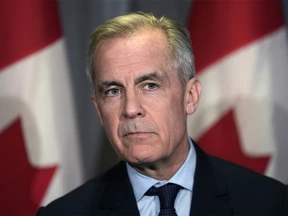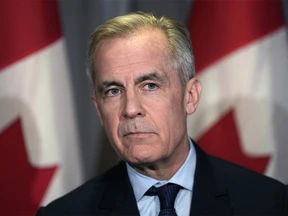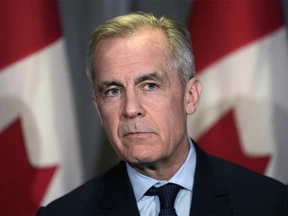
Mark Carney’s Assertion: “Canada Must Not Forget U.S. Betrayal”

Introduction
Prime Minister Mark Carney’s statement that Canada must “never forget” the U.S. betrayal has struck a deep chord in the country’s consciousness following the 2025 federal elections. A significant change in Canada’s foreign policy and its relationship with its southern neighbour is highlighted by this statement. Examining the historical background, the occasions leading up to this proclamation, and the possible ramifications for Canada’s future is crucial to comprehending the seriousness of Carney’s remarks.
Karim Janat Shines in IPL Debut for Gujarat Titans! 2025
Historical Context

Deep economic ties, cultural exchanges, and shared defence commitments make up one of the most extensive and interwoven relationships in the world between the United States and Canada. But there have been tensions in this relationship. Tensions have arisen over the years when Canada’s interests have deviated from those of the United States. However, mutual respect and diplomacy were frequently used to resolve these conflicts.
The 2025 Federal Elections

A major shift in Canadian politics occurred with the 2025 federal elections. Former Bank of Canada and Bank of England governor Mark Carney guided the Liberal Party to a minority government, winning 167 seats in the House of Commons, which has 343 seats. Even though this was not a clear majority, it was a resounding win that demonstrated a change in the attitudes of the electorate. Smaller parties like the NDP and Bloc Québécois held the remaining seats, while the Conservative Party, led by Pierre Poilievre, won 145 seats.
The U.S. Betrayal

Carney’s assertion of a U.S. betrayal stems from a series of actions and statements by U.S. President Donald Trump that were perceived as aggressive and disrespectful towards Canada. Notably, Trump imposed a 25% tariff on all Canadian goods, excluding the automobile and energy sectors, and suggested that Canada should become the 51st state of the United States . These actions were viewed by many Canadians as an affront to their sovereignty and economic well-being.
Carney’s Response

Carney confronted these issues in his victory speech. He made it clear that Canada would not be threatened or forced to comply. Carney rejected Trump’s annexation threats, saying, “We will never, in any shape or form, be part of the U.S.” “Our retaliatory tariffs will remain in place until the U.S. shows us respect and makes credible, reliable commitments to free and fair trade,” he added.
Nationalistic Sentiment

A growing sense of Canadian nationalism was tapped into by Carney’s rhetoric. Many Canadians believed that an unpredictable and hostile neighbour threatened their nation’s identity and sovereignty. Voters who were keen to defend Canada’s interests internationally and declare its independence were won over by Carney’s uncompromising approach.
Implications for Canada-U.S. Relations

Carney’s statement represents a significant change in Canada’s strategy regarding its relationship with the US. In the past, Canada has made an effort to keep its relationship with its southern neighbour cooperative and balanced. Carney’s adamant position, though, calls for a reconsideration of this strategy. Retaliatory tariffs and a focus on sovereignty show that Canada is willing to defend its position, even if doing so means facing negative economic effects.
Economic Considerations

Canada faces many difficulties as a result of the U.S.-initiated trade war. Imposition of tariffs threatens important industries and upsets long-standing trade patterns. Carney’s administration, however, seems dedicated to enduring these economic turbulences in support of Canada’s sovereignty. The government is taking a calculated approach to lessening the effects of the trade war by concentrating on diversifying trade alliances and bolstering homegrown industries.
International Reactions

The events between the United States and Canada have been closely watched by the international community. Canada’s allies have endorsed its position, stressing the value of upholding fair trade policies and national sovereignty. On the other hand, some countries have issued warnings against rising tensions and urged both to talk and look for diplomatic solutions.
The Path Forward

The government’s top priorities as Canada moves through this difficult time will probably be bolstering homegrown industries, expanding trade alliances, and reaffirming its place in the world economy. Carney’s leadership will be essential in guiding the nation through these difficult times while preserving Canadian sovereignty and protecting its interests.
Conclusion
The statement made by Mark Carney that Canada must “never forget” the U.S. betrayal captures a pivotal point in the country’s history. It displays a shared resolve to defend Canada’s economic prosperity and sovereignty against outside threats. Canada’s response will surely influence its future relationships and its reputation in the international community as the situation develops.





